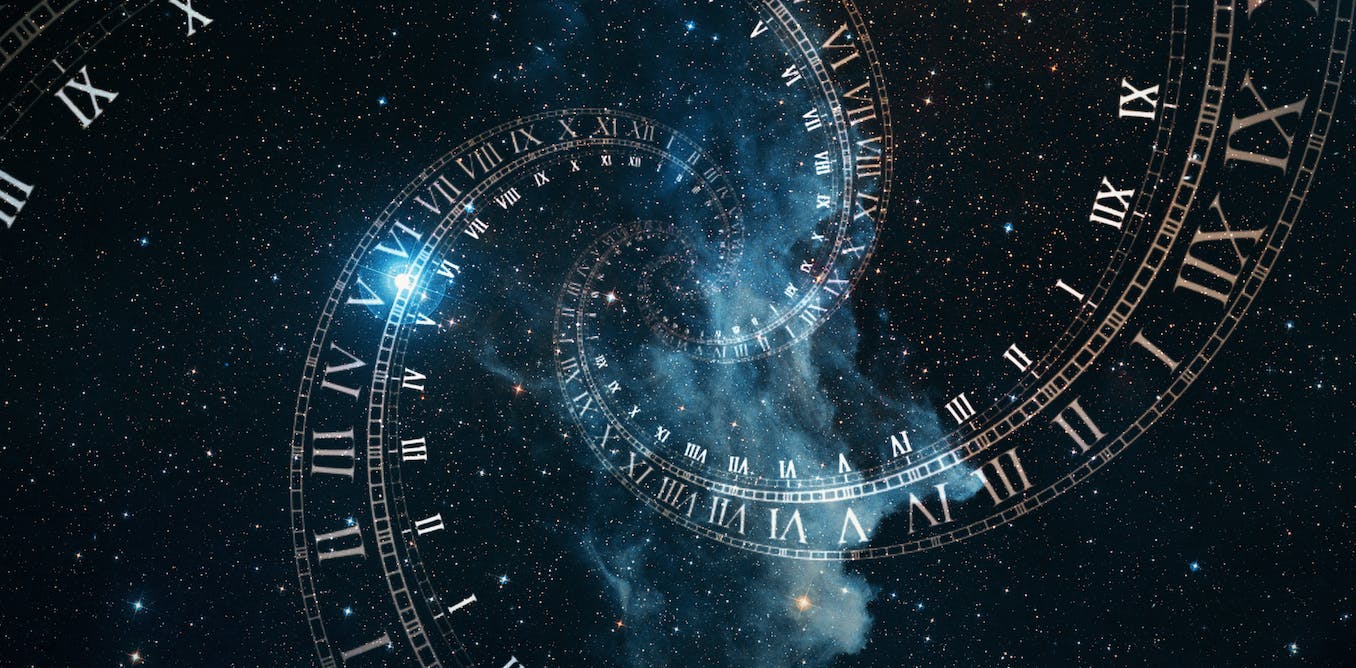The most relevant paragraph:
Now, using a new way of linking the clocks with ultra-fast lasers, researchers have shown that different kinds of optical atomic clocks can be placed a few kilometres apart and still agree within 1 part in 10¹⁸. This is just as good as previous measurements with pairs of identical clocks a few hundred metres apart, but about a hundred times more precise than achieved before with different clocks or large distances.
Tl;Dr They are trying to make a better atomic clock that could provide a more precise definition of a second then we currently have.
deleted by creator
The more precisely you can count time, the more precisely and finely you can measure other things. This not only applies to fast phenomenon. It can also be used for syncing up multiple measurements made in different places; like that image of a black hole we got a couple of years ago.
It’s another step in getting a finer resolution on the universe.
Precision? The answer was literally in the comment you replied to.
Detect smaller gravity waves, possibly, hopefully.
To… get a more precise definition of a second ? It’s already pretty precise but not 100% accurate so why not ?
At first I was like: The second what?
This. Same… 😅
That’s the problem when your language doesn’t have capitalization for nouns
The second division of the hour.
Can’t wait for decimal time with 100,000 seconds/day /s
Decimal time exists, thanks to the French Revolution.
There are 100 decimal seconds in a decimal minute, 100 minutes in a decimal hour, and 10 hours in a decimal day. Each second is slightly shorter than a SI second.
I know and nobody uses it.
Unfortunately, there is no easy way to decimalise time for human use. If you make it useful for humans, it doesn’t sync well to a day. If you make it sync to a day, the resulting units are awkward for the human mind.
Amusingly, for computers, time is decimalised! UTC is a fully metric time. It’s just simpler to constantly remap to and from UTC to a user’s time, than to train the user to use UTC.
For computers, Unix time is in binary. But yes.
However, humans can get used to longer/shorter seconds, minutes and hours. Arguing the opposite is like saying the meter would never work because it doesn’t have a human body relation like feet. The problem is the sheer amount of documents, equipment and SI using the 24/60/60 system, and the indivisibility of 365.24.
The divisibility of 60 is useful, too. It has 1, 2, 3, 4, 5, and 6 (plus any combination of the above) as factors making dividing time a relatively simple operation.
I actually quite like this idea. Or we could start using number base 12 instead of 10 everywhere else.
This would outdate centuries of equipment and scientific publications in the metric system.
A better idea is the International Fixed Calendar:

I always get a semi when this calendar is mentioned, I love it so much! Maybe someday, this is what we’ll all be using.
Semi-what? Truck?
I think the gentleman refers to his flagpole being at half-mast.
Oh that’s sad. Who died?
( ͡° ͜ʖ ͡°)
Uh, hell no. There should be ten months a year, ten days in a month, and ten hours in a day, ten minutes in an hour… and we should all use artificial lighting with scheduled blackout blinds to make the daylight hours line up. Putting everyone in the world on the one true timezone.
Those would be long days… 87 (current) hours and 40 minutes.
Why not one year a day ?
Today is Jan 1, 2312 . Tomorrow is Jan 1, 2313. My birthday is Jan 1 every 365 years for 1,095 years starting on year 2493, then Jan 1 366 years later. After that, repeat the thing.
So it would match what we all tell Steam is our birthday.
I’ll draft a letter to the moon to advise them to reduce their number of annual cycles by 2.
I like the spirit, but it needs tweaking. Sept, Oct, Nov, and Dec need to go back to being 7, 8, 9, & 10, respectively. Also, make the leap day at the end of the final month to keep all the weeks starting on the same day of the week.
29 June would be another non-weekday, much like Year Day.
Which months would you (re)move to adjust Sep-Dec to 7-10? Personally, I would just rename all of them but no idea what they should be.
29 June would be another non-weekday, much like Year Day.
That works for me!
Which months would you (re)move to adjust Sep-Dec to 7-10?
I would get rid of July and August because I don’t care for the Caesars. I guess we could expand the format and have a Quinquember and Sexamber.
Personally, I would just rename all of them but no idea what they should be.
Sounds like a fun idea to do with friends and keep it going as a running joke!
It doesn’t show on the calendar, but the description already said each month ends on a Sunday, so 29 June is a Sunday.
If we’re doing that, we should fix the month names. We start off really strong with January, named after Janus, Roman god of doorways, transitions and new beginnings. Banger name for a month honestly. Things remain pretty solid up until June, then we completely drop the ball in the second half of the year. Honoring two egotistical tyrants, then we just give up and number the rest of the months, and incorrectly at that.
I would change month names entirely to prevent confusion with the old system. Viva la révolutión!
It seems the leap day should just be next to the New Year’s Day, not randomly in the middle of the year. Most people then get an extra long weekend (almost) every 4 years.
I agree: legacy devices that display the weekday will only need to be readjusted once in each year.
So I become a Sol baby? Everything I have would need to be changed.
The only winners here are the January babies.
Fuck this…
It’ll likely happen once we move to living mostly in space (if we survive that long ofc)
With a full switch to metric, hopefully. We’ve lost a Mars probe to unit confusion already.
Not everything needs to be base 10.
No but everyone’s life will be easier. Fortunately, most space agency empoloyees are scientists who embrace the metric system because it is less error-prone and does away with arbitrary conversion like in3 / floz. Space civilians will hopefully follow suit.
Metric also has a different unit name for force (N) and mass (kg) as opposed to the ambiguous pound – which works well enough on Earth but not on bodies with different gravity.
Is this like when they made the kilogram some function of the speed of light instead of the weight of a metal ball in a French museum?
They linked the kilogram to the gravitational force.
It’s part of an effort to clarify how we define things. We’re now trying to link our recorded units to the basic forces they are related to. So now, the kilogram is defined by the gravitational force, the meter by how fast light travels, etc etc
The kilogram is defined as the mass equivalent of a photon of a specific energy via the Planck constant h thus linking the speed of light and the frequency of the hyperfine level of caesium-133. The relative uncertainty of the measured value of the gravitational constant G is 10^-5 which would lead to a definition of the kilogram that has a worse relative uncertainty than using the former definition defined via an international prototype. The Wikipedka article is more detailed than this short summary.
So yes?
TiL
I knew about redifining the kilogram as it’s related to gravity beforehand
But not the next part about kg and photons and planck etc etc. I learned all that just now by reading a response to my comment
I genuinely did not know about the relationship to light until just now.
So, yes. But again, your comment alone didn’t help me understand about the relationship beforehand. I wasn’t sure what you meant at all, so just responded with my understanding of it
I misread that as “meat ball”, and now I’m kind of disappointed that we don’t use meatballs as a standard unit. “I’m 6 meatball subs and 3 balls high”, “The yacht is about 18 giant party subs long”, etc.
Unfortunately this is a bit like the imperial system where you get multiple units of measurement. There is the standard foot-long, which is twelve inches, and there is the $5 foot-long™, which is only 11 inches
Which is also further befuddled by bragging teenage boy foot long which is around 5"
Not exactly. The kilogram was redefined in a fundamentally different way, moving from an artifact, which will change with time, to a fundamental property of nature, that as far as anyone knows, will be the same at all times. The second was already defined in such a way. Any such definition still requires some sort of measurement though to get something usable. Different ways of measuring the same type of definition can be more precise, and in this redefinition they think they’ve found a more precise method that works in the same fundamental manner. Both measure the oscillation rate of atoms, but the proposed element is thought to give better precision.
Hey! Wait a sec
Could you be more specific?
Would this affect our lives on Earth?
Most likely indirectly, like how GPS has to account for satellites not matching the passage of time on earth due to relatively.
You can now be more accurately late for work. Or your coffee is more accurately taking a long time to come out.
If they can predict earthquakes and eruptions more accurately, as suggested in the article, then yes for all the people who don’t die.
Relativistically.
I better not have to buy a new watch because of this.
Wont that fuck up the other measures that use the second as a basis?




















